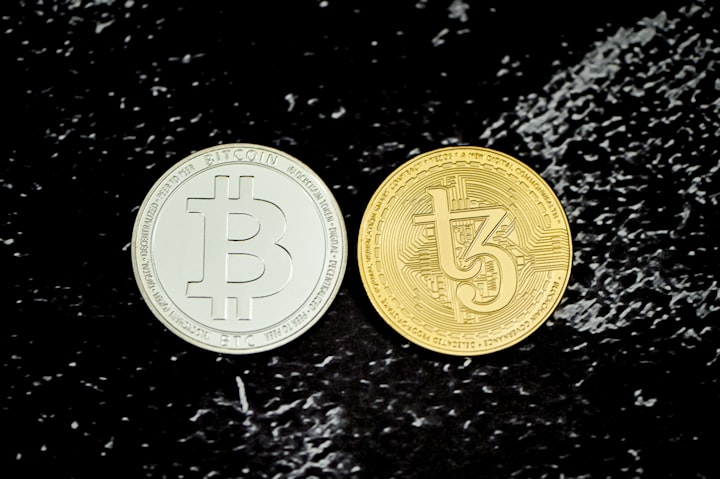The Birth of Cryptocurrency and the Future of Financial Transactions
Cryptocurrencies are digital currencies created and managed using advanced cryptographic techniques called cryptography. Cryptocurrency made the leap from academic concept to (virtual) reality with the creation of Bitcoin in 2009.

Additionally, cryptocurrencies could be listed on the Nasdaq, further strengthening blockchain's credibility and use as an alternative to traditional currencies. Some predict that all cryptocurrency needs are verified exchange-traded funds (ETFs). ETFs will undoubtedly make it easier to invest in Bitcoin, but there should still be demand to invest in cryptocurrencies that may not be automatically generated in funds. It is a decentralized currency that uses peer-to-peer technology where all functions such as transaction processing, verification, etc. can be performed collectively over the network.
This decentralization frees Bitcoin from government manipulation and interference, but the downside is that there is no central authority to keep things running smoothly or to ensure Bitcoin's value. . Bitcoins are created digitally through a "mining" process that requires powerful computers to solve complex algorithms to decipher numbers. Currently created at a rate of 25 Bitcoins every 10 minutes, capped at 21 million, a level expected to reach in 2140.
These characteristics fundamentally distinguish Bitcoin from fiat currencies backed by the full trust and creditworthiness of governments. Fiat currency issuance is a highly centralized activity overseen by a country's central bank. Banks regulate their spending according to their monetary policy objectives, but in theory there is no upper limit on how much they can spend. In addition, local currency deposits are usually insured by government agencies against bank failures. Bitcoin, on the other hand, has no such support mechanism. Bitcoin's value depends entirely on how much investors are willing to pay at any given time
Customers who have bitcoin balances have no way to get them back, even if the bitcoin exchange crashes. April attracted a lot of attention from investors and media. In April 2013, it hit a new high of $266 per bitcoin after falling in the last two months, before increasing tenfold. Bitcoin's market value, which peaked at over $2 billion, plummeted by 50% soon after, sparking heated debate about the future of cryptocurrencies in general and Bitcoin in particular.
So will these alternative currencies eventually replace traditional currencies and become as ubiquitous as the dollar and euro? Will it erupt? The answer lies in Bitcoin.
When asked what the birth of cryptocurrency will bring to the financial world, the first thing that probably comes to mind is what is cryptocurrency? It doesn't come to mind. But if you are one of the few dominant figures who know cryptocurrency even with your eyes closed, then this question can be answered in more detail.
So to speak, the real beginning of the turmoil was when Bitcoin was introduced to the world and eventually became the most famous and popular cryptocurrency. The project is largely driven by ongoing money from people whose money and assets are controlled by central institutions (often with the government itself intervening), whose transfers are restricted and frozen in time. A complaint to address the complaint. With the advent of Bitcoin, many people have the opportunity to purchase his coin or currency online that can be used in a manner similar to fiat currency. Acquisitions are labor-intensive and resource intensive, but from the beginning we were drawn to acquisitions because we wanted to move away from being restricted to a single entity controlling everything else financially.
Slowly Bitcoin began to acquire real monetary value, new types of cryptocurrencies emerged as possible answers to the problems of Bitcoin
Cryptocurrencies were not widely accepted, but slowly gained momentum and now many other companies use cryptocurrencies for payments and accepted as a means of exchange. The same thing is slowly happening with new cryptocurrencies. The profits are not guaranteed and the software that runs them is open source, but many are still looking to acquire these currencies as another investment opportunity. If it continues to improve over time, more and more people will turn their attention to acquiring these coins, and more businesses will trade them for real





Comments
There are no comments for this story
Be the first to respond and start the conversation.